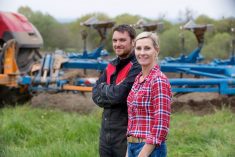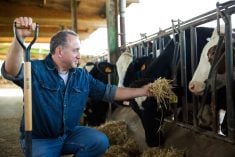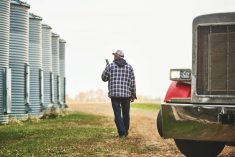There’s no question that much of the progress that farmers have made in the past five years has come from the quality of advice they have received.
It’s impossible to weave an accurate statistical story of the progress agriculture has made since the bull market began in 2007, but I’m convinced that most farmers have made prudent decisions of how to handle the returns from those years.
Most farmers have positioned themselves as well to be even more efficient in future. I know that some farmers have overinvested in machinery, and that this may come to haunt them. There will be others who have ignored the opportunity to pay down debt and have paid too much for land.
Read Also

How women lead with confidence in agriculture
Gender bias is complicated. It can be intentional, but it can also be subconscious or structural, such as when it’s…
- More with Tom Button on Country Guide: Who will the winners be as the farm sector evolves
But by and large, farmers have made wise decisions in areas where they have expertise, or where they know how to assess the expertise of the people they are listening to. Farmers aren’t investing in just any machinery. They’re investing in the machinery that aligns with what they’re learning from agronomists, soil scientists and a host of others. Plus, I’m continually impressed at the increasing sophistication of farmers’ commodity marketing, based on their careful evaluation of the advice that is available from a growing number of sources.
The short and the long of it is, when farmers have the tools to assess their advisers, they make shrewd decisions about whose advice they will take.
But this cannot be as easily said for the legal and accounting advice they are receiving, not because farmers lack the brains to figure it out, but because they lack the ability to make informed, competent decisions among potential advisers.
It’s true that in aggregate, the financial and legal advice farmers are getting today is more sophisticated than it was a generation ago when more farmers relied on bookkeepers than on accountants. But the complexity of farm operations and their need for sophisticated advice have grown by an even greater amount.
Too many of these professionals are learning the farm portion of their business on the job, which puts farmers at great risk.
Too many farmers too are frustrated and often stymied by the conflicting advice they get from different channels.
In such a specialized industry, when the whole future of an operation can ride on the details of its incorporation, for example, word of mouth isn’t a good enough way for a farmer to assess their advisers.
We had hoped the Canadian Association of Farm Advisers would make greater strides in this direction. We agree — the association has helped. But it has not helped enough. It will come up with myriad excuses to explain why, but in the end none really amount to more than saying to your clients, “well, too bad for you.”
Am I getting it right? Let me know at [email protected].














